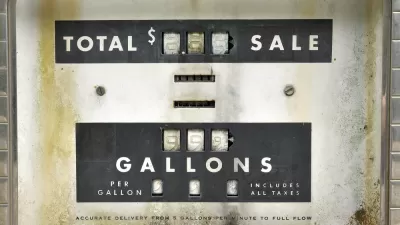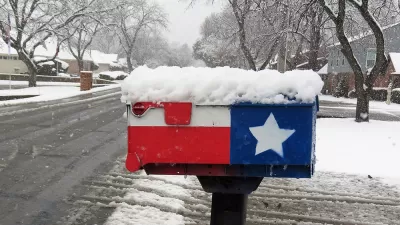BP's chief scientist provides his insight into solving the energy and climate crises, including the affect of higher gas prices and separating transportation from the heat and power sectors when dealing with strategies to reduce carbon emissions.
"After nearly 30 years at Caltech as a professor of theoretical physics and, eventually, provost, Steven Koonin took a leave of absence in 2004 to become BP's chief scientist. After a year of study, he recommended a strategy for the company that has included investments in unconventional sources of oil as well as renewable energies such as solar. Technology Review's energy editor sat down with Koonin...to discuss BP's strategy and whether it will be possible to meet the world's energy challenges.
Technology Review: What's the best way to reduce gas consumption?
Steven Koonin: Raising the price of driving is the simplest way to induce conservation and efficiency. Look at how much response we saw when the price of gasoline went up to $4.50 a gallon. We've seen it work over the last year. But raising gas prices is very difficult politically to do. In fact, you see the candidates going in the opposite direction.
TR: When you look at public policy decisions, what are some other mistakes you've seen?
SK: One is confusing transportation with stationary sources of power and heat. What problems are we trying to solve? If it's carbon dioxide emissions, there are cheaper ways to do it than improving transportation. If you improve the efficiency of a vehicle to reduce fuel use and carbon dioxide emissions, for many vehicle technologies it will take several hundred dollars per ton of carbon dioxide. But transport is only 20 percent of energy-related emissions. Heat and power from stationary sources are most of it. At $50 a ton, there's a lot of carbon that can be wrung out of stationary sources. When you start cranking the price up to $100 to $200, that's when you start to affect transport, whereas we can shift to lower-emissions heat and power at $50 a ton."
Thanks to Pat Carstensen
FULL STORY: Strategies for the Energy Crisis

Planetizen Federal Action Tracker
A weekly monitor of how Trump’s orders and actions are impacting planners and planning in America.

Map: Where Senate Republicans Want to Sell Your Public Lands
For public land advocates, the Senate Republicans’ proposal to sell millions of acres of public land in the West is “the biggest fight of their careers.”

Restaurant Patios Were a Pandemic Win — Why Were They so Hard to Keep?
Social distancing requirements and changes in travel patterns prompted cities to pilot new uses for street and sidewalk space. Then it got complicated.

Maui's Vacation Rental Debate Turns Ugly
Verbal attacks, misinformation campaigns and fistfights plague a high-stakes debate to convert thousands of vacation rentals into long-term housing.

San Francisco Suspends Traffic Calming Amidst Record Deaths
Citing “a challenging fiscal landscape,” the city will cease the program on the heels of 42 traffic deaths, including 24 pedestrians.

California Homeless Arrests, Citations Spike After Ruling
An investigation reveals that anti-homeless actions increased up to 500% after Grants Pass v. Johnson — even in cities claiming no policy change.
Urban Design for Planners 1: Software Tools
This six-course series explores essential urban design concepts using open source software and equips planners with the tools they need to participate fully in the urban design process.
Planning for Universal Design
Learn the tools for implementing Universal Design in planning regulations.
Heyer Gruel & Associates PA
JM Goldson LLC
Custer County Colorado
City of Camden Redevelopment Agency
City of Astoria
Transportation Research & Education Center (TREC) at Portland State University
Camden Redevelopment Agency
City of Claremont
Municipality of Princeton (NJ)




























